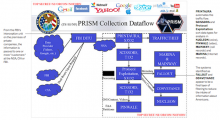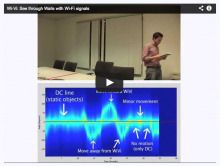Privacy Implications of the Google Glass
By: Daniel Dimov
Google Glass is a wearable computer worn like a standard pair of glasses. The device displays information on a glass screen in front of the eyes of the user. It accepts voice commands that start with the phrase “ok glass.” Google Glass contains 12GB of usable storage and has a 5-megapixel camera which is capable of shooting 720p video. Users will be able to upload photos on the Internet. By the end of 2013, Google Glass will be available to consumers.











































































